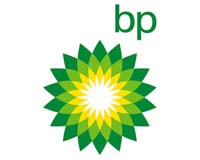 |
Washington (AFP) June 7, 2010 The fragile economy and environment of the southern US coast will take years to recover from the worst oil spill in US history, President Barack Obama and his top disaster official warned Monday. As BP increased the amount of oil it is capturing from a broken Gulf of Mexico wellhead, the US administration pressured the British company to step up compensation payouts to residents whose livelihoods have been shattered. "What is clear is that the economic impact of this disaster is going to be substantial, and it is going to be ongoing," Obama said. "I want to repeat, I do not want to see BP nickel-and-diming these businesses that are having a very tough time," he added, after meeting with top officials in the latest attempt to show his administration is on top of the crisis. National disaster coordinator, Coast Guard Admiral Thad Allen, also warned of the long-term environmental and ecological effects of the slick, which has broken into thousands of ribbons threatening shores from Louisiana to Florida. "Dealing with the oil spill on the surface will go on for a couple of months," Allen said. "Long-term issues of restoring environments and habitats and stuff will be years," he said, as US television aired more heart-rending footage of sea birds coated in oily goop and shots of more oil coming ashore. Allen said BP had succeeded in capturing 11,000 barrels of oil from the containment cap, a mile below the sea (1,600 meters) over the last 24 hours, and planned to soon boost production to 20,000 barrels. A top company official said BP has collected a total of 28,000 barrels of oil from the ruptured well. "This is an encouraging step," Kent Wells, BP's senior vice president, told a press briefing. "It's progressing along well," he said. But Allen said it was still unclear just how much oil was escaping the ruptured wellhead, and what proportion of the escaping crude was being captured since an April 20 explosion ripped through the Deepwater Horizon rig. "We have gone from 6,000 to 11,000" barrels a day, said Allen. "We still haven't established what the flow rate is. That is the big unknown that we're trying to hone in and get the exact numbers on," Allen said. Two current government models put the estimated flow rate of oil at between 12,000 and 25,000 barrels a day, meaning that so far only a portion of the crude is likely being captured. White House spokesman Robert Gibbs however said the operation using the containment cap inserted on the well last week, was fraught with difficulty. "This is a delicate cap and we want to ramp this thing up so that this is a solution that we can work with for weeks and months and don't do something too rapidly to cause something tragic to happen." BP hoped to move a second production platform into place soon to boost capacity of oil that could be siphoned off and produced soon, Allen said. It was also preparing a bigger rig with the capacity to process more crude, which might also be able to stand heavier weather, with the US hurricane season gearing up. BP said Monday it had spent at least 1.25 billion dollars on the Gulf of Mexico oil spill as it continued its efforts to contain the leak. The latest poll carried out by ABC News/Washington Post found that 69 percent of people would give the government as negative rating for its handling of the crisis. BP scored a staggering 81 percent negative rating. Despite the gloom over the disaster, Obama gave an upbeat prediction that the blighted region, still struggling to recover from Hurricane Katrina in 2005, would recover. "The one thing I'm absolutely confident about is that, as we have before, we will get through this crisis. This is a resilient ecosystem. These are resilient people, down on the Gulf Coast. They bounce back." The oil has forced the closure of valuable fishing grounds, blighting the livelihoods of many residents in an area also heavily dependent on tourism. Almost 600 birds have been found dead by wildlife rescue workers in coastal states -- including Alabama, Florida and Mississippi -- as well as for the first time in Texas, while another 223 were found alive covered in oil. Meanwhile, the Nordic bank Nordea said it would begin divesting an estimated 10 million euros in holdings in BP amid concerns over its handling of the crisis.
Share This Article With Planet Earth
Related Links Powering The World in the 21st Century at Energy-Daily.com
 BP sucked up 11,000 barrels of oil in last 24 hours
BP sucked up 11,000 barrels of oil in last 24 hoursWashington (AFP) June 7, 2010 BP captured 11,000 barrels of oil in the last 24 hours from the ruptured Gulf of Mexico well and plans to boost capacity soon to 20,000 barrels a day, the top US disaster control official said Monday. Coastguard Admiral Thad Allen said at a White House briefing that the operation to bring oil to the surface was being carefully ramped up so as not to over stress the delicate containment cap p ... read more |
|
| The content herein, unless otherwise known to be public domain, are Copyright 1995-2010 - SpaceDaily. AFP and UPI Wire Stories are copyright Agence France-Presse and United Press International. ESA Portal Reports are copyright European Space Agency. All NASA sourced material is public domain. Additional copyrights may apply in whole or part to other bona fide parties. Advertising does not imply endorsement,agreement or approval of any opinions, statements or information provided by SpaceDaily on any Web page published or hosted by SpaceDaily. Privacy Statement |